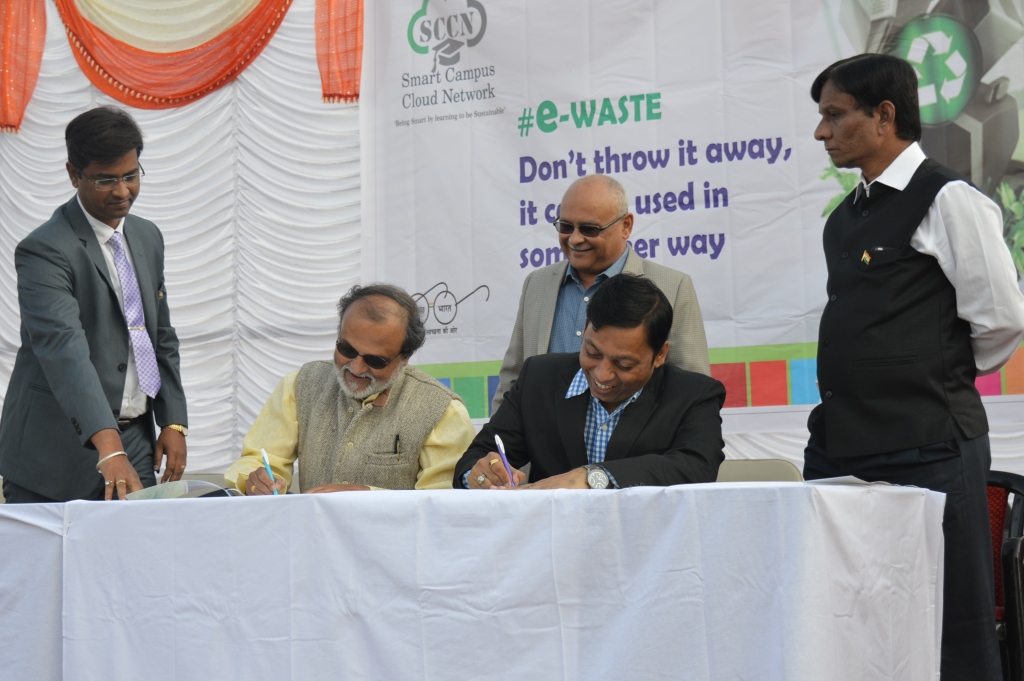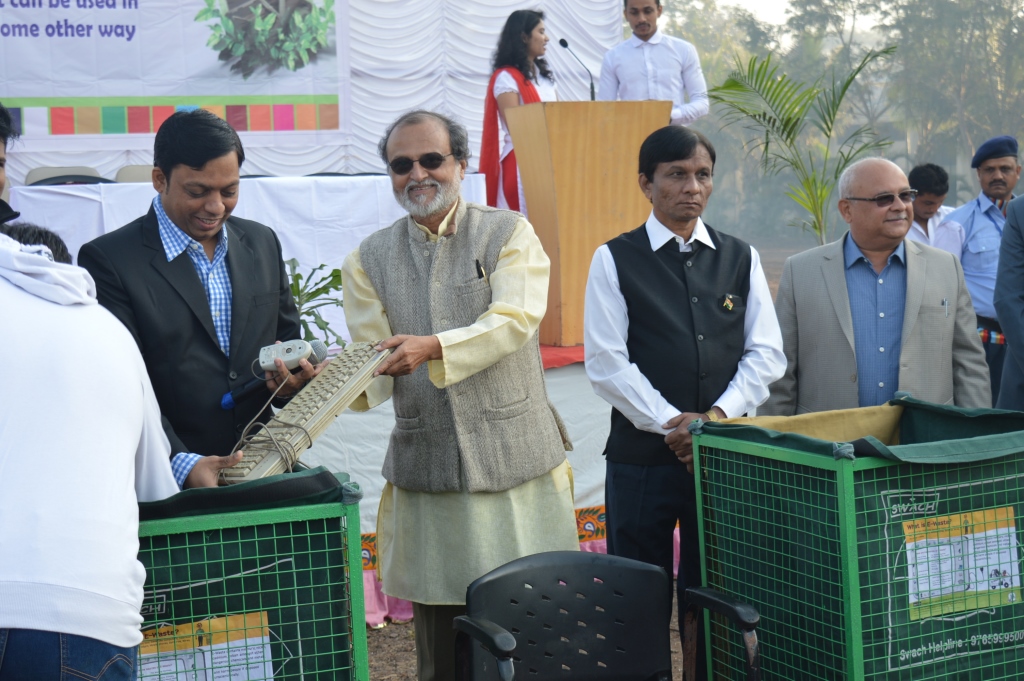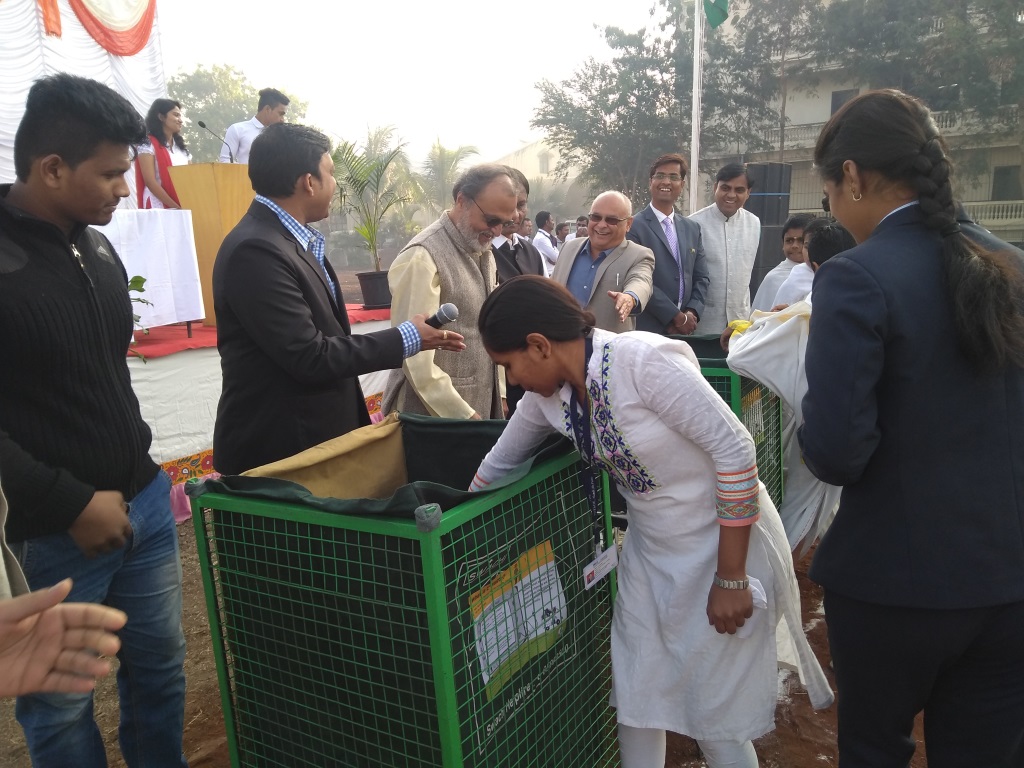SCCN Blogs
E-Waste Management
Digital India is a Dream. E-waste is a Reality
Network of Smart Campus can realize the Dream by Managing the Reality
MIT-World Peace University (MIT-WPU) of India has become the first university to launch e-Waste Management program across their campuses through participative approaches. Students and Faculty have begun collection and segregation of electronic and electric equipment from their campus in Alandi, near Pune in Maharashtra.
"We do not want to miss the futuristic opportunity to deploy the potential of youth in making wealth from modern waste. I am convinced that through the best practices in E-waste management including repair, reuse, recycle and reprocessing of the electronic and electric equipment digital revolution can spread without risk", said Dr. Yogesh Bhalerao, Principal of MIT Academy of Engineering who recently won the award for introducing innovative practices in technical education. " We are , in a way, promoting skill building in social entrepreneurship through such practices", he added.
Initiative by MIT-WPU is part of a larger mission that engages Universities and colleges for achieving United Nations Sustainable Development Goals (UN SDGs). It is promoted across the globe by TERRE Policy Centre, a not-for-profit think-tank through its flagship project of Smart Campus Cloud Network (SCCN).
23 Universities including MIT-WPU have already commenced its onboarding on the SCCN. E-Waste management program is a part of the integrated scheme that also include, inter alia, energy and water efficiencies, sustainable mobility, pollution prevention within the campuses. Based on a robust conviction that universities represent the huge potential to support the implementation of each of the 17 SDGs, and its implementation within the campus can vastly benefit students, TERRE supported by UNESCO and HRD Ministry of India is enabling universities to unleash their reserve of creativity. SCCN digitally connects the university and college campuses and allows on-line information sharing on real time basis on the sustainable activities within the campus. The students and faculty through IOT (Internet of Things) and Cloud Network can share the results of their activities with other campuses to trigger positive competition and innovation.
India produced nearly 2 million tonnes of E-waste in 2016. That is equivalent to more than eight Howrah Bridges of Kolkata. E-waste is the dark side of the bright story of the digital dream of India. Unwanted electronic and electrical devices include computers, old laptops, cell phones, cameras and air conditioners, televisions, sensors, PCBs, and LED lamps.
Improper and unsafe treatment and their disposal through open burning or in dumpsites, pose significant risks to the environment and human health. Unethical and illegal employment of the poor children in segregating and retrieving the useful parts of the E-waste has been the subject of emerging social evil in the developing countries.
The initiative on E-waste in campus would unleash the potential of students in exploring the opportunities of creating wealth from the e-waste by forays into innovations helping the society to reduce e-waste and recovering precious metals like Lithium, Cadmium, Nickel, Mercury by using appropriate technologies.
Engaging with the SDGs can also benefit universities and college campuses by helping them to demonstrate impact, increase demand for SDG-related education, build new partnerships, access new funding streams, and develop talented pool of students who are responsible and globally aware. In particular, it will help address the SDGs related to environmental protection (Goals 6, 11, 12, and 14) and health (Goal 3). It will also address Goal 8 that focuses on employment and economic growth.
India's 69th Republic Day was selected as the most appropriate occasion by MIT-WPU and TERRE to unfurl the launch of the E-Waste management program. "The campuses are the perfect hotspots to build policy makers of tomorrow to address the emerging challenges of the digital India. The dream of digital India of our Prime Minister would come true if we manage the challenges like E-waste" said Rajendra Shende, Chairman of TERRE Policy Centre, former Director of UNEP and IIT-alumni.
MoU signing between (L to R) Rajendra Shende, Chairman TERRE Policy Centre and Dr. Yogesh Bhalerao, Principal MIT Alandi for SCCN
When you subscribe to the blog, we will send you an e-mail when there are new updates on the site so you wouldn't miss them.








Comments